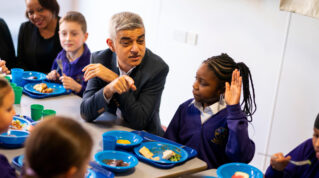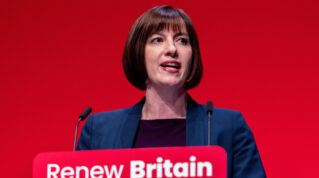Funding for universal infant free school meals will rise by just 1.2 per cent next year, despite predictions food costs and wages will increase by far more.
The Department for Education told schools today that the rate per meal would increase by 3p next academic year, from £2.58 to £2.61.
The rate rose by 5p last year and 12p in 2023.
Schools already face huge budget pressures, with unfunded pay teacher and support staff pay rises coming down the track.
Today’s announcement is likely to make matters worse.
Food prices rose by 3.3 per cent in the year to February and could reach 5 per cent by the end of the year. At the same time, the national living wage has increased by at least 6.7 per cent, and national insurance contributions by 9 per cent.
Free school meals funding has also failed to keep pace with inflation: in 2023 the Institute for Fiscal Studies found it had lost 16 per cent of its value in real terms since 2014.
It comes after Schools Week revealed how hard-pressed schools were warning of extra pressures from the rising cost of outsourced contracts as companies grapple with national insurance hikes, minimum wages and food costs.
‘Disappointing’
Paul Whiteman, general secretary at school leaders’ union NAHT, said: “This disappointing below-inflation increase will still leave many schools having to subsidise free school meals from budgets already seriously stretched after years of real-terms funding cuts under previous governments.”
He quoted School Food Matters, which has “estimated that it now costs £3.16 to provide a hot meal.

“Suppliers sometimes pass on increased costs of producing meals and school leaders are caught between a rock and a hard place. They don’t want to compromise on the quality of food provided, but that may mean having to cut spending on other things which may affect children’s learning.
“We urge the government to look carefully at the actual costs of providing meals and make sure these are fully covered in the funding schools receive.”
Pepe Di’Iasio, general secretary of the ASCL union, said funding for free school meals “has not come close to keeping up with rising food prices and other costs.
“Policies such as free school meals and breakfast clubs can be a real lifeline to families who are struggling, but if they are going to be done on the cheap then their impact will be greatly diminished.
“If the government is serious about tackling child poverty, they have to provide a level of investment that enables schools to implement these policies effectively.”















Your thoughts